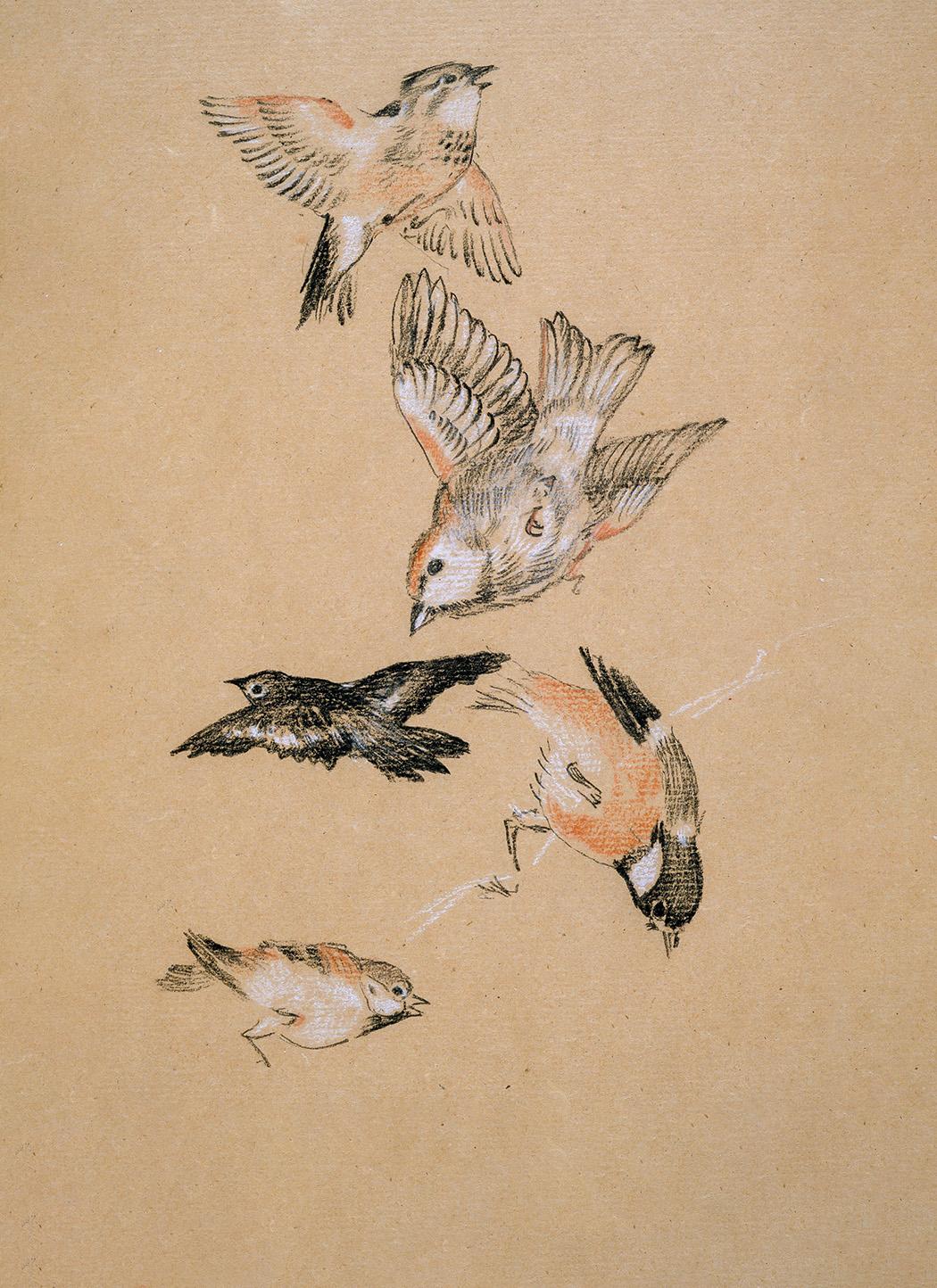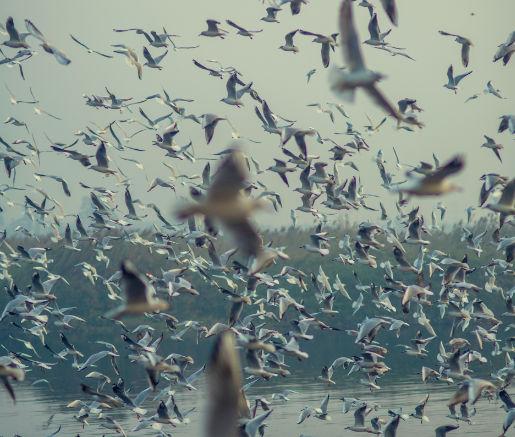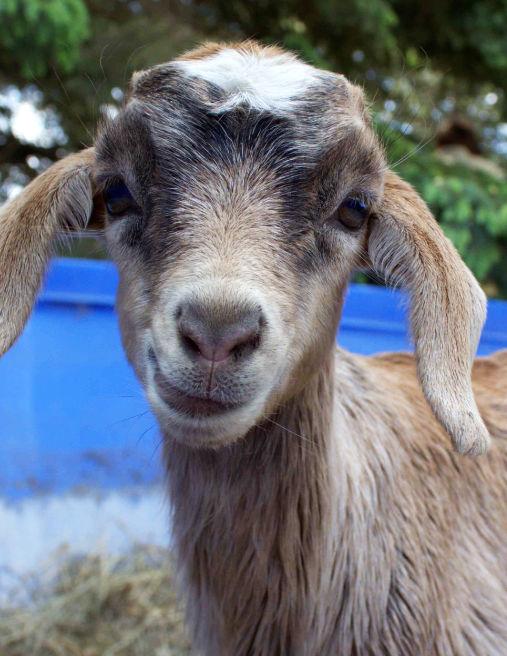
CONNECTING CHURCH & COMMUNITY June '23 Formations Repping Justice and Renewal: An Interview with R. Susan Smandych 8 5 PWRDF Conference Unites Attendees in Justice Work 13 11 Grow Hope Continues to Grow!
Publisher | Bishop Geoffrey Woodcroft
Editor | Jude Claude
Accounting | Joy Valencerina
Advertising | Angela Rush
Layout & design | cityfolkcreative.ca
Rupert’s Land News is published 10 times per year (September - June) by the Diocese of Rupert’s Land, in the Anglican Church in Canada. It connects churches and communities from Portage la Prairie, MB, to Atikokan, ON, by offering news, events, opinions, and ideas to 4,000 readers per month. RLN is available in a variety of formats: Website • Facebook • Twitter
We also deliver timely news and information via a weekly email. Sign up here
Advertising - RLN accepts advertising in our monthly magazine and our weekly email. View our rate sheet. To discuss advertising call (905) 630-0390 or email us.
Editorial offices:
Anglican Lutheran Centre
935 Nesbitt Bay
Winnipeg Manitoba, R3T 1W6
RLN exists to explore issues at the intersections of faith and life. In doing so we solicit and publish a range of opinions, not all of which reflect the official positions of the Diocese. We acknowledge that we meet and work in Treaty 1, 2, and 3 Land, the traditional land of the Anishinaabe, Cree, and Dakota people and the homeland of the Metis Nation. We are grateful for their stewardship of this land and their hospitality which allows us to live, work, and serve God the Creator here.
RLNwelcomesstoryideas,newsitems,andother input.Ifyouwanttobeinvolvedinthismedia ministry,pleaseemailtheeditor
Contents copyright 2023 by Rupert’s Land News. All rights reserved.
Cover: Love leading the Pilgrim - Study of Birds: Finches, Sir Edward Burne-Jones, 1897. Birmingham Museum.
2 CONNECTING CHURCH & COMMUNITY
Formations
“Andsuddenlyfromheaventherecamea soundliketherushofaviolentwind,anditfilled the enire house where they were sitting. Divided tongues, as of fire, appeared among them, and a tongue rested on each of them. All of them were filled with the Holy Spirit and begantospeakinotherlanguages,astheSpirit gave them ability.”
Acts 2:2-4
In the story of Pentecost, the disciples’ experience of being filled with God’s Spirit is seamlessly continuous with their outward behaviour in the world. Crowds draw near as the disciples’ experience with the Spirit throws them into dialogue with others, at once being formed intheSpirit,andconstitutingoutwardformations.
It is the image of the experience of formation in the Spirit and the effects of this shaping on social formations which inspires this month’s issue of the Rupert’s Land News.

The issue opens with a reflection on the Seven Sacred Teachings Event held at St. Peter’s in which Elder Mike Monias and 1JustCity's Indigenous Cultural Programmer, John McKay, ledtheparishinlearningabouttheSevenSacred Teachings, and deeply impacted all gathered. Next, several articles spotlight the Primate's World Relief and Development Fund (PWRDF), and the Diocese of Rupert's Land's involvement in PWRDF work. Included is a report on the PWRDF conference held in May, which featured the Director of Relief, Development and Protection at Church World Service Africa, Mary Obiero. Then, R. Susan Smandych is interviewed
about her work as the PWRDF diocesan representative for Rupert’s Land and the value of PWRDF in assisting Anglicans in living out our Five Marks of Mission. This is followed by a report from Colin Dorrian on Anglican Grow Hope and the impact the program is having on individuals near and far. Included are photos from May’s beautiful Rogation Service in celebration of Grow Hope, held in Pembina Valley, Manitoba. Finally, this month's issue includes a compiled list of resources related to the reporting of sexual misconduct experienced within the church. Links to these resources are also available on RLN's website.
This month’s issue also marks my last issue as editor for RLN, before leaving the province to return to graduate studies. Thank you, readers. In the short time I’ve occupied this role I’ve felt your graciousness through inperson conversation and kind emails. Community engagement makes RLN worthwhile, and I’m grateful to have gotten to hear from, and learn from, a diversity of readers throughout our diocese. I am thankful too to the many contributors to the magazine. It has been a gift to read so many rich theological articles, personal reflections, and informative pieces, and to glean wisdom and inspiration from interviews with people in our diocese and in the surrounding community. Thank you too to RLN’s truly excellent advisory board, (Matthew Bowman, Bonnie Dowling, Bishop Geoff, and Pam Bann) who inform and support the work of RLN—thank you especially to Pamela Bann, who has unassumingly devoted many hours to copy editing RLN publications, and is a source of strength for RLN's work. Finally, thank you to RLN’s designer Mike Berg, who has been a joy to work with, and whose skills bring each issue of this magazine to life beautifully.

3 Editorial
Jude Claude is the editor of Rupert's Land News.
Photo: Aditya Saxena
Commissioned
In the last 6 months social media and local press agencies have sung the song of Creation in refreshing and powerful ways. Music programs, food justice, justice-linked development programsandacall/desiretopartnerwithskateboarders placed a downtown parish in the headlines. Another downtown parish selflessly hosted justice and charity symposiums and also made the headlines and was featured by television/radio news agencies. Still another, with little financial resources and few people, was in the news for their radical, if not reckless, spending while providing over 300 meals each week to people they have come to know by name. These are but three parts of the Body, among many in our diocese who work to show that God’s kingdom is close-at-hand, and deeply-within.
In an age commonly described as postChristian, at a time where societal trust in Church seems to be very low, we continue to rehearse God’s purpose for the Church as described in our baptismal covenant. The relationships we share in our neighbourhoods illustrates how much we need to be mindful of what God is up to in the life of creation, and how Christ's Body fits into that.

I lament that parts of the Body are not well, or have entered a palliative stage of life. These are pillars of historical significance, social networking, and collaboration, and the birthing placeofideasforuniquetimesinGod’smission. Disciples within these contexts often fear the loss of their church, spending much of their hopes and resources on the physical reminders of the Church’s activity – “keeping the doors open” is a phrase I often hear.

While immersed in fear, it is difficult to understand what it is God is calling us toward; it is difficult to hear God calling at all. Remember the description of Eli in 1 Samuel, who understood “the word of God to be rare in
those days.” I think we can also understand this phrase to be saying that Eli rarely heard or listened to the word of God. In fact, Eli’s family was dysfunctional and rebellious toward God, doing what was normal for the privileged, while around them people suffered.
I understand God to speak through the vibrant responses made to vibrant neighbourhood communities. I think God is exciting a wider population into conversations that make for healthy communities through genuine relationships. Discipleship, life-long learning, and forgiveness are hallmarks of parishes leading, and participating in, their surrounding neighbourhoods.
Equally, God speaks through every palliative moment—the soul longing for reunion in a loving God, and the Church preparing to die well, a message of “Well done, good and faithful steward,” as was received by Eli. I will hold COVID-19, and our lack of finances, to little account for the palliative nature of the Church. In fact, I give thanks for the opportunity of what is before us today as we reach and yearn to hear God speak. As a Church, the Body, we are to do this listening and discernment together, not in fear and desperation, but in sure and certain hope of the resurrection.
Everything is from you, O God, from your coreyouhaveprovidedall that there is. Teach us again to appropriate the gift you have given with gratitude, together with open hearts and joyful voices, to the end that your Church shall thrive where you have called it to thrive; through Christ our Lord. Amen.
4
Geoffrey Woodcroft
Pastoral note
Photo: Grant Whitty
Geoffrey Woodcroft, Bishop of Rupert’s Land
Seven Sacred Teachings Event: A reflection on our experience by the people of St. Peter’s



Love. Respect. Courage. Honesty. Wisdom. Humility. Truth. All of these virtues were embodied by our Indigenous guests at a wellattended event held in mid-April at St. Peter’s Anglican Church, Winnipeg. Elder Mike Monias and Indigenous Cultural Programmer, John McKay, from 1JustCity, along with assistants Marie and Audrey, led us in learning about the
Seven Sacred Teachings. We were told what they are, how they are represented by the characteristics of specific animals, and how important and central the teachings are to particular Indigenous cultures. The multidimensional presentation of the seven teachings expanded our understanding and was greatly appreciated.
5 Community
Compiled by Janet Bouskill on behalf of the Outreach and Adult Christian Education Teams, and the Parish of St. Peter’s
Photo: Raimond Klavins
Elder Mike Monias John McKay
But the morning together offered much more. Amidst the explanation of the teachings, Elder Mike and John shared stories, in a dignified and matter-of-fact way, about their personal experiences of trauma in their lives and those of their families. As uncomfortable as itwastohearthestoriesofthehorrorsendured, we were able to begin to grasp the impact of them, and understand why solutions and healing are so necessary. Some stories originated in our own neighbourhood, such as the forced attendance at Assiniboia Residential School and the evacuation of Rooster Town.
Elder Mike talked about his firm decision to refuse to take the road of bitterness and despair, and instead to become a wounded healer,inservicetoCreator,Indigenouspeople, and to all. In the face of the dark history that exists between settler people and the first inhabitants of this land, this was, and is, an admirable choice to serve God and neighbour. The courage and dedication involved is to be commended.
At the end of the morning, the practice of smudgingwasexplainedandweweregiventhe
opportunity to participate while Elder Mike encircled us with drumming. This was a moving experience, powerful and transformative, and increased a sense of connectedness and care for one another.


6 Community
Attendees participate in smudging
Elder Mike Monias
We were indeed privileged to experience the remarkable grace, courage and honesty shown by our Indigenous guests. The presentation was excellent and offered the perspectives of all the leaders involved. The elders’ candidness in sharing experiences and answering questions was a gift. We encourage other parishes to host or to participate in future events offered by these leaders. The experience of hearing the stories firsthand is invaluable.
We at St. Peter’s now recognize more fully the need to accept and move forwardwithreconciliation,seriouslyand effectively. We have been inspired and encouraged to keep on learning and to work toward healthy relationships with all Indigenous peoples, wherever we might meet.

To conclude, in a brief conversation with Elder Mike after the session, he described his feelings about the participants’ responsiveness and willingness to learn, and the opportunity to share the morning together. In effect, Elder Mike said,
“I feel light; as if I am on the wings of an eagle.”

7 Community
“We have been inspired and encouraged…”
Photo: Rachel McDermott
Conference Unites PWRDF Staff, Representatives, and Supporters in Working for Global Justice


Parish representatives for the Primate's World Relief and Development Fund (PWRDF) in the Diocese of Rupert’s Land recently gathered for a transformative conference. The event featured local, national, and global guests, including PWRDF staff Suzanne Rumsey, Kim Umbach, and Carolyn Cummins; PWRDF Board Chair Valerie Maier, and PWRDF Board Vice Chair Mark Hauck; PWRDF Diocesan Representatives from the Diocese of Qu’Appelle and Diocese of Athabasca; and keynote speaker Mary Obiero, Director of Relief, Development, and Protection (RDP) at Church World Service Africa, based in Kenya.
Participants were greeted with a breakfast of coffee, tea, and cinnamon buns, and gift bags containing PWRDF resources. Smudging, graciously offered by Elder Rev. Murray Still, was also available.

The conference officially began with a welcome session led by PWRDF Diocesan Representative Rev. R. Susan Smandych. An offeringoftobaccowasmadefromPWRDFstaff to Elder Murray Still in gratitude for his involvement in the event. Participants joined in morning prayer and song, and Bishop Geoff Woodcroft delivered a homily of encouragement to those gathered.

8
Jude Claude
Photo: Gabriel Vasiliu
PWRDF
Bishop Geoff
Morning worship
Bishop Geoff leads the group in morning worship
The rest of the morning featured icebreaker activities, information about May’s Rogation Service in support of the Grow Hope campaign, andotherreportswhichshedlightonsignificant PWRDF initiatives, including anecdotes from a recent visit to farms which support the Grow Hope campaign.

Marlene Smith, Refugee Coordinator for the Diocese of Rupert’s Land spoke about her work in the diocese, emphasising the importance of compassion and support for displaced communities, and reflecting on the diocese’s work over the years of successfully sponsoring refugees.

A highlight of the conference was the deliciouscateredlunchfeaturingjerkchickenand rice, which offered participants a well-deserved break while fostering informal conversation.
The keynote speech delivered by Mary Obiero deeply impacted attendees. With over two decades of dedicated work in addressing hunger and improving lives in Kenya, Obiero shared her expertise with attendees, and told poignant stories of firsthand witness to food insecurity and famine.
accounts tangible, as attendees saw photos of communities’ cattle lying dead from dehydration, and watched one video featuring awomanwhoregularlycarrieswatermanymiles in order to provide a small amount of sustenance to her family. Obiero spoke too of Kenyans who, despite facing food insecurity themselves, shared their small rations with neighbours,believingitwascrucialto“leaveno one behind.”
Obiero further discussed the vital partnership between Church World Service Africa, the Canadian Foodgrains Bank, and the Primate's World Relief & Development Fund. Since 2020, emergency rations have been provided to 13,000 households, impacting approximately 81,000 individuals. Obiero stressed that this support meant “saving lives.”
The afternoon featured related discussion and celebration of the Anglican Grow Hope program including a report from Grow Hope farmer and organizer, Chris Lea, Grow Hope project leader, Colin Dorrian, and from Canadian Food Grains Bank (CFGB) representative, Gordon Janzen. A workshop was also offered which focused on empowering PWRDF representatives to effectively present the meaningful and motivating aspects of PWRDF's work.
Obiero explained the brutal impact Kenya's worst drought in 40 years is having on rural communities, revealing that some regions had not received any rainfall in four years. Her descriptions of her work were devastating and painted a pressing picture of the escalating crisis. She spoke of how communities who bear no responsibility for climate change are sufferingitseffects.Imagesandvideomadeher
April’s conference fostered a sense of unity and purpose, reinforcing participants' commitment to promoting global justice through their work with PWRDF.
9 PWRDF
Mary Obiero
Colin Dorrian
On April 30, PWRDF president Valerie Maier visited St. Mark’s Anglican Church, Wpg., and spoke to the congregation about the work of PWRDF.


“Valerie was outstanding, and after her presentation, people better understand the work of PWRDF. Everyone at the service enjoyed and appreciated her presence.”
-Michael Daramola
10 PWRDF
Valerie Maier visits St. Mark’s
Valerie Maier
How did you come to be involved with PWRDF? What drew you to become a diocesan representative?
In Spring of 2022, Bishop Geoff approached me to see whether I would consider serving as the Diocesan Representative, given my background in international development. I readily agreed, since PWRDF’s commitment to “work towards a truly just, healthy, and peaceful world” epitomizes what we as the Body of Christ are called to do, in our baptismal covenant.
Why is the work of PWRDF important for the church?
PWRDF is important to the church, since its programs are a tangible, relevant and meaningful way to live out the Five Marks of Mission in our increasingly complex and
interconnectedworld,specifically,torespondto human need by loving service; to seek to transform unjust structures of society, to challenge violence of every kind, and to pursue peace and reconciliation; and to strive to safeguard the integrity of creation and sustain and renew the life of the earth.

What PWRDF initiative or project are you most excited about right now, and why?
The 2023 Grow Hope campaign is getting off to a great start. Participants in the recent Rogation Service in Pembina Hills got a chance tolearnaboutGrowHope;’scurrentpartnership with the “Vegetable and Reforestation Project” in Tanzania, which is really very promising. I am also excited to see more Indigenous Programs being supported across Canada, including within the Diocese of Rupert’s Land.
11 PWRDF
Repping Justice and Renewal:
R. Susan Smandych on Being a PWRDF Diocesan Representative Jude Claude
Photo: Pawel Czerwinski
What’s the most rewarding part of being a PWRDF diocesan representative?

It is so wonderful to see how parishes and people in Canada enthusiastically connect with partners overseas; at the heart of PWRDF is people-centereddevelopment,andfosteringof relationships across the world.
What’s the most challenging part of being a PWRDF diocesan representative?

From a practical perspective: keeping the list of parish representatives up to date—so if any parish has a change in rep, please let me knowassoonaspossible,sothecontactlistcan be updated accordingly.
If someone wants to support or get involved in PWRDF’s work how would you recommend they go about starting?
A) Contact your PWRDF parish representative (andifyoudonotknowwhoyourparishrep is, ask your Incumbent)
B) Contact me at priest@stpetersanglican.ca and one of us can share resources with you. If your parish does not currently have a rep, and you may be interested in becoming a rep, please contact me and we can chat! I am also available to visit parishes, either in person or via Zoom, to share an overview and/or update about PWDRF.
OR
12 PWRDF
R. Susan Smandych
Grow Hope Continues to Grow
Colin Dorrian

TheGrowHopeprojectbeganseveralyears ago and continues to be a significant PWRDF program within our diocese. The Grow Hope project is designed to help bring rural and city Anglicans together, helping to build a program which raises funds for needed causes throughout the world.
The Grow Hope project begins with the commitment of a farmer to grow a certain number of acres of a crop such as wheat, canola or soyabeans. The number of acres for the program is based on the ability of people to raise funds to pay for a portion of the farmer’s input costs. The program aims to provide $300 per acre to the grower i.e., in 2022 we raised enough funds to have 15 acres committed to theprogram.Thefarmergrowsthecrop,sellsit, and donates the money to the diocese. The money is then transferred to the PWRDF account. The first farmer working with the Grow Hope project was Chris Lea who lives in the Manitou area of Manitoba. Last year a new farmer joined the program; Fred Wiebe and his sons from Springsteen, MB joined the program, and are committed for 2023.

The funds from Grow Hope have been
used in many different ways and towards numerous purposes. Last year Grow Hope funds were targeted for a relief project in Kenya. Kenya is facing severe drought situations, with some areas of Kenya having been without rain for 4 years—it is hard to imagine the devastation that the drought has had on the people, the animals, and the land. This past spring the coordinator of the project from Kenya, Mary Obiero, came to Western Canada. Several of us had the privilege of travellingwithMaryasshevisitedthefarmsand met the farmers who had participated in the Grow Hope project. It was truly a very impactful and emotional meeting when Mary told those farmers, in person, that they had made a difference and helped save people’s lives. There was not a dry eye in the group.
This year we have identified the project for which Grow Hope funds will be targeted. The funds will be directed towards the Nyaragusu refugee camp in Tanzania. The funds will be used to help a targeted group of refugees learn to grow vegetables suitable to the area, with the intention of having this group teach others in the camp to grow vegetables for their own use—a great project to help meet the needs of people.
Fred and his sons already have the crop of soyabeans planted for the upcoming year. They have offered to donate the proceeds of 40 acres to the program; and so, we have a goal of raising at least $12,000 ($300 x 40) for the program.
How do you donate?
It is very simple: You can donate to the Diocese of Rupert’s Land, with “Grow Hope” specified on the donation. The donation can be made directly to the diocesan office or to your church secretary, who will forward it to the diocese, and appropriate personnel.
13 PWRDF
The Grow Hope program continues to flourish and grow in the diocese of Rupert’s Land.
Colin has been a member of St. Peter’s Anglican Church for 37 years. He has spent his whole working career in the Agricultural Industry, which is probably why he is such a big supporter of the Grow Hope project.
Photo: Pierre Herman
OnSundayMay28,aRogationService celebratingAnglicanGrow Hope was held in Pembina Valley.





This year’s Rogation Service had a major turn-out of over 140 people, thanks in large part to the organizing and incredible hospitality of Chris Lea and the Pembina Valley community. Attendees had the opportunity to learn more about the work of PWRDFfromPWRDFpresident,ValerieMaier, andaboutCanadianFoodgrainsBankandthe Grow Hope program from Pamela Obonde (International Learning Coordinator, CFB)

14 PWRDF
Resources Relating to the Reporting of Sexual Misconduct
Legal Supports and Related Resources
Manitoba:
• Community Legal Education Association
• Legal Help Centre
• Victims Services Manitoba
• Safe Work Manitoba (Workplace Harassment Specific)
Ontario:
• Sexual Assault: What are My Legal Options? (Ontario Women’s Justice Network)

• Independent Legal Advice for Survivors of Sexual Assault (Ontario.ca)
• If You Are Experiencing Violence (Ontario.ca)
• Victim’s Services Ontario
• Workplace Harassment Information (Ontario.ca) (Workplace Harassment Specific)
Resources for Reporting Within the Diocese of Rupert’s Land
Documents:
• Sexual Misconduct Policy
• Respectful Workplace Policy
From the Pastor for Healthy Communities: “Wondering how to report a complaint of sexual misconduct in the Diocese of Rupert’s Land?Haveaquestionaboutsexualmisconduct within the Diocese? There is a dedicated, confidential phone line at 204-453-3279. Messages go only to the Pastor for Healthy Communities (currently The Rev. Canon Mary Holmen) for response and action. All members of the Diocesan community and the general public can access the Diocesan Sexual Misconduct Policy at Sexual Misconduct Policy fortheDioceseofRupert’sLand|Guidelinesand Policies | Diocese of Rupert’s Land (rupertsland. ca). The policy sets out the procedures for reporting and responding to complaints of sexual harassment, sexual exploitation, and sexual abuse. A Diocesan Resource Team works with the Bishop and Pastor for Healthy Communities in implementing the policy.”
15 Resources
Photo: Mohammad Alizade
Below is a list of resources, sourced and compiled by RLN’s Editor, which relate to the reporting of sexual misconduct experienced within the church.
Resources for Civil/Criminal Reporting
Manitoba:
• “Involving the Police After a Sexual Assault” Guide by Klinic Community Health
• Third Party Reporting Resources
Manitoba (gov.mb.ca)
• Manitoba Human Rights Commission (Workplace Specific Reporting)
Ontario:
• Ontario Human Rights Commission (Workplace Specific Reporting)
Counselling and Crisis Supports
Manitoba:
• Klinic Community Health
• Drop-In Counselling: (204) 784-4067
• Sexual Assault Crisis Line: (204) 786-8631
Toll-Free (outside Winnipeg): 1-888-292-7565
• Trauma Counselling: (204) 784-4059
• Survivor’s Hope
• Kanikanichihk (Indigenous Women Specific)
Ontario:
• Ontario Network of Sexual Assault/ Domestic Violence Treatment Centres
• Assaulted Women’s Help Line:
1-866-863-0511 / TTY 1-866-863-7868
• Male Survivors of Sexual Abuse Provincial Crisis and Support Line (Ontario Victim Services):
1-866-887-0015
Faith Specific Resources
• Faith Trust Institute: #MeToo, #ChurchToo Resources
• GRACE (Godly Response to Abuse in a Christian Environment) Resources
Image: and machines

16 Resources

































